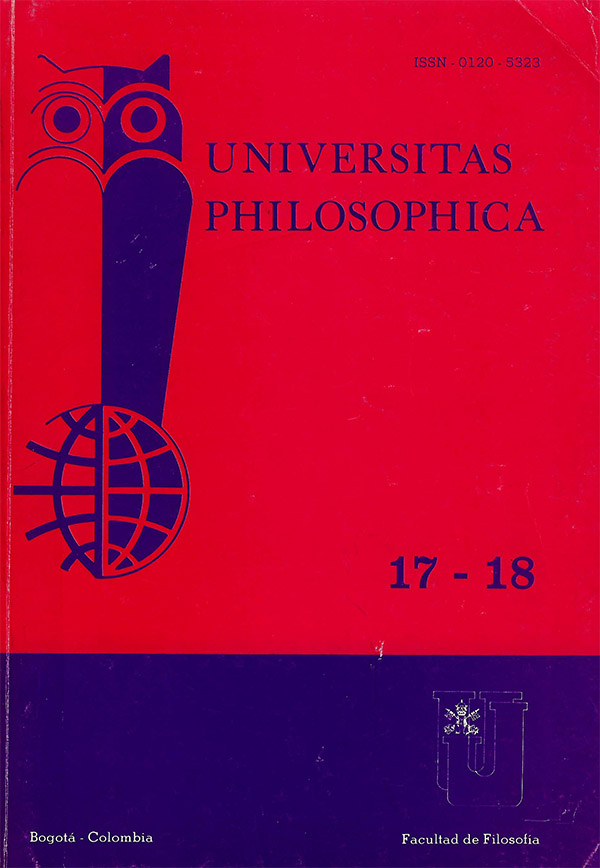Abstract
En el "encuentro" Spinoza-Nietzsche, esta ponencia se propone presentar un asunto clásico: el poder del pensamiento sobre las pasiones. Cómplices en el mismo complot, Spinoza y Nietzsche intentan liberar la existencia de la más fuerte de las pasiones: el resentimiento. Para ello cuenta el primero con su singular idea de Dios; con la idea del eterno retorno el segundo. El conocimiento verdadero de Dios como causalidad inmanente produce un incremento de la fuerza de existir en quien lo adquiere. Como acto estético del pensamiento, como experimentación paródica, el eterno retorno configura una transformación de la existencia, una existencia que abandona el tiempo de redención.This journal is registered under a Creative Commons Attribution 4.0 International Public License. Thus, this work may be reproduced, distributed, and publicly shared in digital format, as long as the names of the authors and Pontificia Universidad Javeriana are acknowledged. Others are allowed to quote, adapt, transform, auto-archive, republish, and create based on this material, for any purpose (even commercial ones), provided the authorship is duly acknowledged, a link to the original work is provided, and it is specified if changes have been made. Pontificia Universidad Javeriana does not hold the rights of published works and the authors are solely responsible for the contents of their works; they keep the moral, intellectual, privacy, and publicity rights.
Approving the intervention of the work (review, copy-editing, translation, layout) and the following outreach, are granted through an use license and not through an assignment of rights. This means the journal and Pontificia Universidad Javeriana cannot be held responsible for any ethical malpractice by the authors. As a consequence of the protection granted by the use license, the journal is not required to publish recantations or modify information already published, unless the errata stems from the editorial management process. Publishing contents in this journal does not generate royalties for contributors.


